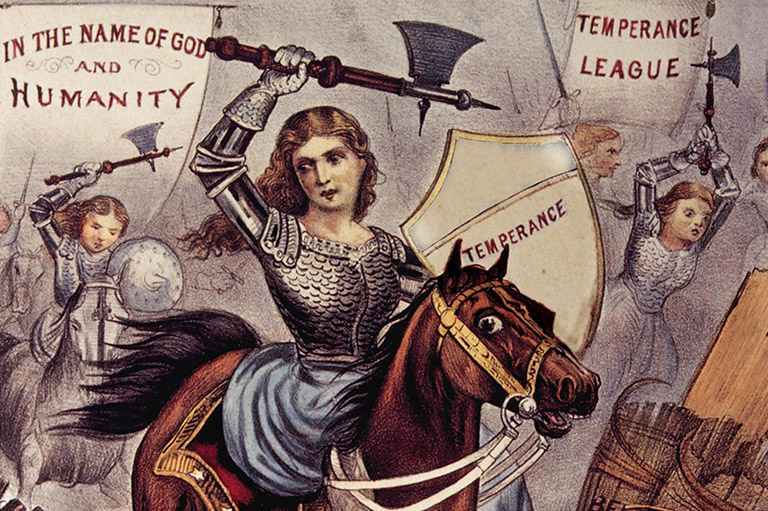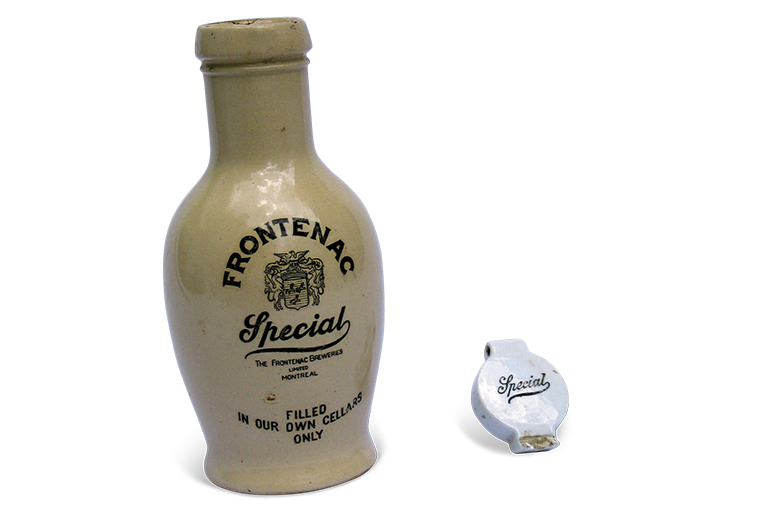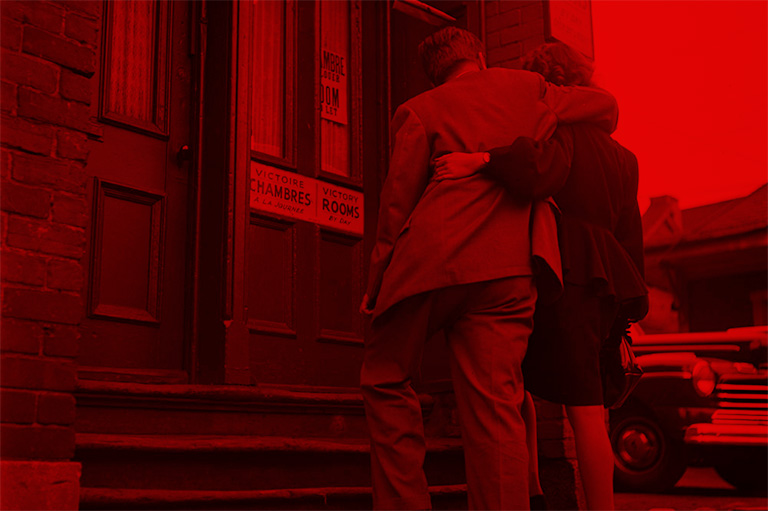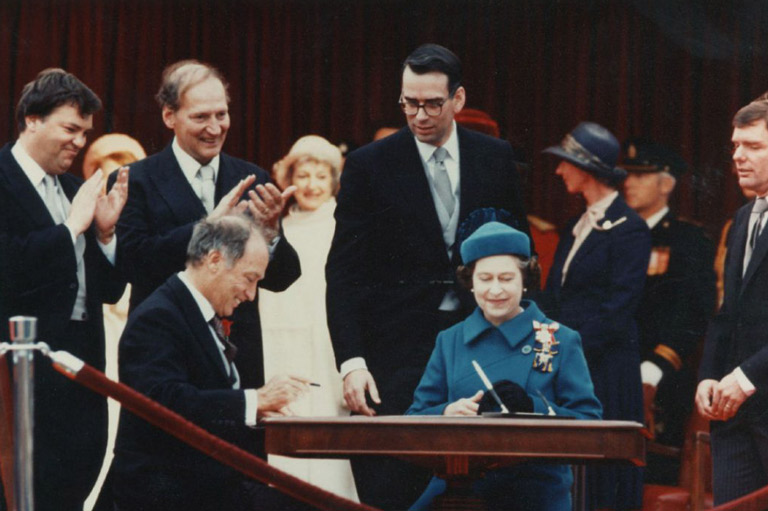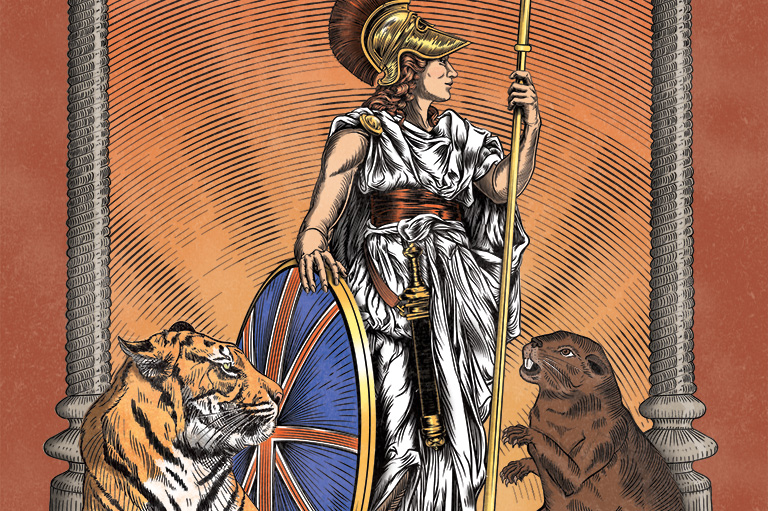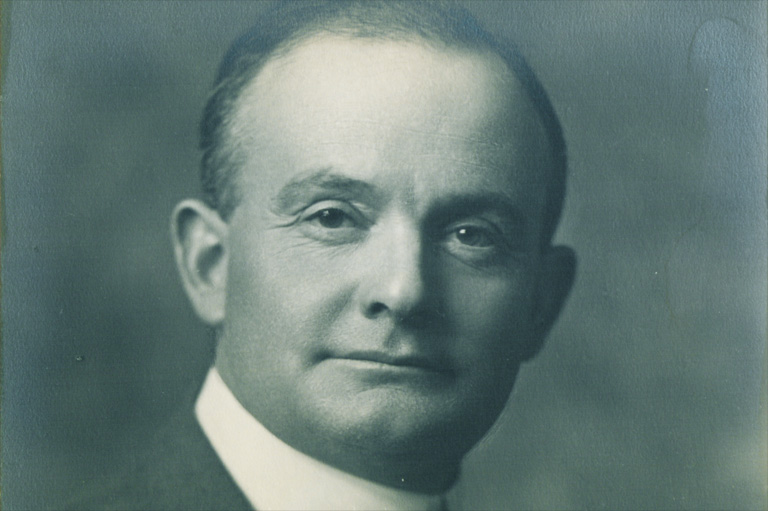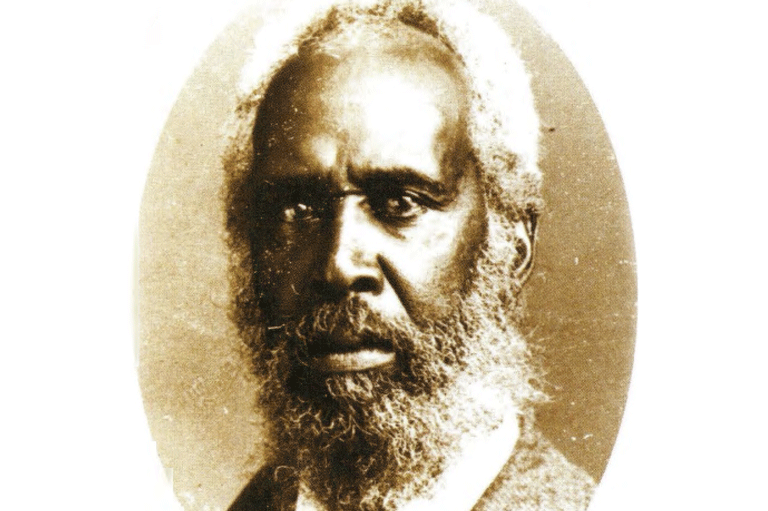The Working Man's Beer

Thomas Uphill, the MLA for Fernie, B.C., from 1921 to 1960, remains a unique figure in the history of British Columbia. First elected as a candidate for the Federated Labour Party in 1921, returned as a member of the Canadian Labour Party in 1924, and then as an Independent Labour candidate for the next thirty years, Uphill holds the distinction of being the longest-serving MLA in the province’s history. All major political parties — Conservative, Liberal, Social Credit, and CCF — made concerted but unsuccessful efforts to unseat him. He worked consistently hard for his constituents in the Elk Valley, a rural region nestled in the Rocky Mountains a thousand kilometres east of Vancouver. He spoke forcefully on behalf of working people, the unemployed, and the poor. One public stance that gained him much attention but little applause throughout his political career was his defence of what he regarded as the working man’s fundamental right to enjoy a beer.
As the mayor of Fernie during much of the First World War, and as the unsuccessful Conservative candidate in the provincial election of 1916, Uphill made no secret of his opposition to the prohibition of sales and consumption of alcohol. In the referendum that accompanied that election, the constituency of Fernie was one of only four in the province to vote against the proposed prohibition legislation; and, with almost fifty-eight per cent of those voting opposed, it was the riding that did so most convincingly. However, arguments combining patriotism and the goal of social improvement carried the day across the province. After much delay and controversy surrounding the soldiers’ vote from Europe, provincial prohibition of the sale of alcoholic beverages to residents of British Columbia came into effect on October 1, 1917.
Despite their triumph, supporters of prohibition still had much to complain about. The manufacture of alcoholic beverages was not prohibited by the provincial legislation. Breweries could produce their beers for export to other provinces, and retailers could continue to sell wines and spirits to customers not living in British Columbia. With all provinces but Quebec dry by the end of 1917, prohibitionists called for the elimination of those loopholes. The federal government responded by banning the manufacture and interprovincial sale of liquor after March 1918. The only beer then legally available for sale or consumption in British Columbia was a watery brew of approximately 1.5 per cent alcohol by volume that was popularly, but disdainfully, referred to as near-beer or two-per-cent beer. Uphill insisted that such beverages were “a waste of good water.”
Ironically, liquor of any strength was still available through a doctor’s or druggist’s prescription. This very wide loophole, and the well-stocked cellars of those who could afford to purchase booze before regulations took effect, meant that prohibition — whether or not it was so intended — had the effect of being class legislation. Uphill’s working-class constituents typically had no such well-stocked cellars and little financial ability to purchase hard liquor by prescription for whatever its purpose might be. Hard liquor was not their preference, anyway. The popular belief that beer was the drink of the working man was firmly grounded in reality. (Although women also worked in blue-collar jobs, particularly during the war years, they were not associated in the popular imagination with beer drinking, which was seen as a masculine pastime.)
Voters throughout the province became increasingly disgusted with the hypocrisy and loopholes that bedevilled the Prohibition Act. The spectacle of Prohibition Commissioner Walter Findlay being fined for bootlegging in 1918 and imprisoned for the same offence the following year only underlined the prevailing postwar opinion that prohibition had failed to achieve any degree of social improvement. The second pillar of prohibitionist argument, patriotic support for the war effort, crumbled as the peace treaties were signed in Europe in 1919. Well aware that the question of liquor sales and consumption was highly divisive — particularly within both the governing Liberal Party and organized labour — the government decided to consult the electorate once more.
With 7 uniquely curated newsletters to choose from, we have something for everyone.
As Uphill was contemplating a second bid for the Fernie seat, the referendum of October 1920 asked simply if prohibition — under new regulations to close significant loopholes — should be continued or instead abandoned in favour of government control of the sale of alcoholic products. Prohibitionists believed that women — eligible to vote provincially for the first time — would help to ensure the continuation of “the dry option.” When fully sixty-two per cent of voters province-wide opted for government control, prohibitionists quickly turned around and blamed the result on “the immaturity” of female voters. The Fernie Free Press welcomed the result by commenting that the “Prohibition Act had proved such a farce that to vote for its continuance seemed a joke.” Uphill saw the decision as a return to common sense and applauded his home constituency for voting nearly three to one against a continuation of prohibition. When a provincial election was called later that month, Uphill — who had recently lost his job as mayor of Fernie in a municipal election — announced that he would make a second attempt to win provincial office.
As one of three successful Federated Labour Party candidates when the election results were announced in December 1920, Uphill thanked his working-class constituents for their support and declared that he would stand with them in the march “forward to victory over the class that has so long held us in subjugation.” Militant though this seems, Uphill was no revolutionary. He soon annoyed his more doctrinaire supporters by being the first Labour representative to attend the traditional dinner and dance for MLAs held at Government House. His maiden speech in the legislature was all about employment, unemployment, and pensions for workers — themes to which he would return repeatedly over the course of his political career. But by far the greatest issue before the first session of the newly elected legislature was how to frame legislation to deal with the results of the referendum approving the government sale and distribution of alcohol. And it was on that contentious issue that Uphill came to the attention of the province at large.
The proposed Government Liquor Bill specified that alcoholic beverages would be available in sealed packages to customers who had qualified to make purchases by paying an annual five-dollar fee. Veterans groups argued that beer should also be available in their clubs, and Uphill made the same request for workers clubs. Supporting the addition of a “beer clause” that would permit the sale of beer by the glass in such clubs, Uphill spoke eloquently in favour of “good beer and letting it run as free as possible.” He declared: “When I mention beer I mean good draft beer and I would prosecute anyone who would brew this two percent stuff.” He argued that beer should also be available in bars in remote locations, since “boys in these places are as entitled to some civilization as the boys living on the coast.”
Fundamental to his argument was his belief that beer, made widely available, would greatly curtail or even “eliminate the hard stuff,” the consumption of which, he insisted, found no favour with him. As a Methodist, Uphill was well aware that most adherents of his church formed the bedrock of prohibitionist opinion in British Columbia. He shared their intolerance for drunkenness but consistently opposed all fresh initiatives to ban the consumption of hard liquor. Explaining that nuanced stance, he insisted that government cannot “make people good by legislation.”
There was considerable public support for including a beer clause in the new legislation, but it was soon obvious that its advocates were in a minority in the legislature. Even fellow Federated Labour MLA Samuel Guthrie opposed the beer clause, insisting that workers needed to remain clear-headed to focus on social and political realities. In committee, the proposal found only a dozen supporters, prompting Uphill to remark: “That’s thirty-two for whisky and twelve for beer.” He managed to introduce a beer clause of his own during third reading — proposing that “pretty good stuff” of roughly four-per-cent alcohol by volume should be made available in clubs and at meetings of societies — but it, too, went down to defeat. Instead, the new Liquor Control Board was authorized to sell beer only in sealed packages to customers who had paid an annual licence fee. With curtained windows and sparsely decorated interiors, government retail stores opened throughout the province in June 1921. Uphill undoubtedly would have been pleased that one of the initial suppliers of beer to these outlets was his hometown Fernie-Fort Steele Brewing Company.
Advertisement
There were so many problems with the new system, and so much avoidance of its regulations, that yet another referendum accompanied the provincial election of June 1924. Voters were asked if they would approve of the sale of beer by the glass in licensed premises. A bare majority of voters said no, but the more remote districts that Uphill insisted were “entitled to some civilization” were heavily supportive. His own riding of Fernie voted four to one in favour. Predictably, Uphill’s advocacy of easier access to beer drew the ire of prohibitionists. From his pulpit at Victoria City Temple, Pastor Clem Davies thundered that hundreds in “the bibulous community” of Fernie needed bread rather than beer, and he condemned Uphill for attempting to force “filthy poison down the throats” of British Columbians. The MLA for Fernie avoided comparably strong language in response but would eventually describe prohibitionists as “minority fanatics.”
The newly elected provincial government agreed to let local results prevail. Victoria, for example, remained dry, while hotels in neighbouring Esquimalt — immediately to the west of the provincial capital — and in far distant Fernie applied for beer licences. After further delay and confusion, the amended Liquor Act giving sanction to the new system was passed in December. This time twenty-eight out of the forty-eight MLAs voted for beer.
And so, in March 1925, was born the beer parlour. It did not offer the congenial social atmosphere of a British pub or a working man’s club such as Uphill had in mind, and he was quick to complain about the ridiculous attendant regulations. Beer was served one glass at a time to patrons who were forbidden to stand with drinks in hand. Food, cigarettes, and non-alcoholic drinks were banned from premises that were just as joyless as the government liquor stores. There was considerable pressure to ban women, as well — to the point that women were effectively excluded, by custom if not by legislation, from entering the beer parlours that opened in 1925. If Uphill expressed an opinion initially on that latter point, it went unreported. However, when challenged during a debate in the legislature as to whether a working man’s wife should enjoy a beer, he replied quickly, “She can have one, too.”
The return of beer by the glass did not end the public debate over the availability of alcohol, but it did represent a limited victory for the position advocated by Uphill. The absurdities of the legislation and the sterile atmosphere of the beer parlours continued to attract his comment, but working men did once again find their beer accessible and affordable. In Fernie and the many other districts that had voted affirmatively in the referendum, that aspect of the battle had been won. When the Liquor Act was opened up for amendments in 1927, Uphill again pressed unsuccessfully for private clubs to have the same right as beer parlours to sell beer by the glass. At the same time, working-class women — and their middle-class counterparts — won the right to enter beer parlours to enjoy a drink, but only through a separate entrance.
For the remainder of his political career, Uphill focussed primarily upon mining legislation, unemployment insurance, pensions, and working conditions. However, during the middle years of the Second World War — shortly after he had been re-elected for the fifth time — the forces that brought about prohibition in 1917 returned to strength. Arguments again emerged to insist that devoting grain production to the manufacture of alcohol was harmful to the war effort. Under Order-in-Council PC 11374, the federal government brought in regulations late in 1942 to restrict the manufacture and sale of beer and spirits nationwide. The fact that he was a provincial politician did not stop Uphill from bringing a strongly worded motion before the B.C. legislature in March 1943 urging MLAs to press Ottawa to repeal the restrictions on beer.
His return to the barricades gained him widespread condemnation in some quarters and much applause in others. Speaking to his motion, Uphill insisted, “Men working in hot conditions need a glass of beer and no one working in a white collar occupation has any right to deny them their beer.” Brandishing a bottle of beer as he spoke, Uphill was accused by other MLAs of having consumed its contents on the floor of the legislature. Feigning outrage, he insisted that the bottle was empty when he brought it in. It was only to make a point, he said, and Uphill did indeed make clear what that point was when he summed up: “Beer is as necessary to the worker as milk is to the baby. ... Hands off the workers’ beer.” His fellow MLAs apparently did not like the “strong stuff” his motion represented. They passed a milder resolution asking the federal government simply to “give further consideration” to the restrictions on beer production.
The federal government was not inclined to reconsider. Uphill continued to press for the reversal of wartime beer restrictions, while urging workers angered by them not to withdraw their support for war bonds in protest. The “No Beer, No Bonds” campaign was an expression of opposition to the regulations and an attempt to apply pressure to have them reversed. The campaign failed to draw widespread support from any quarter, and it certainly did not draw Uphill’s. Prohibition during the First World War had not dampened his enthusiastic efforts to promote the sale of Victory Bonds, and restrictions on beer production during the Second World War did nothing to weaken his endorsement of war bonds. He was certainly pleased when, with the prospect of a federal election looming, the government cancelled the restrictions in March 1944.
Save as much as 40% off the cover price! 4 issues per year as low as $29.95. Available in print and digital. Tariff-exempt!
Uphill was still an MLA when the City of Victoria finally ended more than thirty years of its local prohibition of beer sales by the glass in 1954. It is tempting to imagine the Member for Fernie sneaking out a back door of the legislature to visit the beer parlours of Esquimalt during all those years, but imagination would lead far from the truth on this point. The irony is that the champion of the working man’s right to enjoy a beer was not a frequent patron of beer parlours. He would nevertheless have been aware that the concentration of ownership in the Canadian brewing industry was resulting in a decline in both the quality and variety of beers available during the 1950s. And he would certainly have been saddened to see his hometown brewery — no longer independent, but for some years functioning instead as part of Interior Breweries after merging with Kootenay Breweries of Nelson, B.C. — close completely in 1959 when the company moved all production two hundred kilometres away to Creston, B.C.
According to newspaper reports, Uphill in 1959 was still vigorous in his espousal of causes he held dear and still able to entertain his fellow MLAs and the public gallery whenever he spoke on any topic in the legislature. But with health becoming a concern, he decided not to run in the election of 1960. He died in 1962, the death certificate identifying his occupation as “MLA for Fernie (retired).”
More than half a century later, today’s working man and working woman no longer need a Thomas Uphill to lobby for reasonable access to beer. Restrictions on the availability of alcohol in bars, clubs, and restaurants in British Columbia were progressively peeled away by successive governments; provincial liquor stores have long since removed the curtains from their windows. With the proliferation of independent craft breweries, the quality and variety of beers now available ensure that the “pretty good stuff” he so consistently fought for can readily be found in retail outlets and consumed in public settings far more conducive to enjoyment than the austere beer parlours introduced in the 1920s. In the long run, Uphill won those battles.
Until recently, Uphill’s career had been forgotten by all but the most serious students of British Columbia’s history. Reported to be the longest-serving elected politician in what was then the British Empire, he was chosen as the first MLA to greet Princess Elizabeth when she visited the legislature in 1951. He is perhaps most remembered for his initial support of Social Credit Party leader W.A.C Bennett — support he quickly regretted — which allowed that party to take power in British Columbia in 1952. Perhaps because no major political party spoke on his behalf when awards were being considered, or perhaps because he was so often the defender of unpopular positions, Uphill is not remembered by a memorial anywhere in the province. The legislature in Victoria contains no plaque to draw attention to its longest-serving MLA; the city of Fernie made him a freeman in 1956 but has not otherwise commemorated his career. A seniors housing facility — the result of a community initiative in 1958 to mark the province’s centennial year — opened in Fernie in 1962 and stands alone in recalling his name.
But recently, impressed by Uphill’s consistent advocacy for the right of working people to enjoy their hard-earned beer, Swans Brewery in Victoria decided that an appropriate way to recall that stance would be to name a suitable beverage in his honour: Tommy Uphill IPA, maybe; or perhaps Thomas Uphill ESB — the Working Man’s Beer. In 2018, the brewer settled upon Thomas Uphill Amber Ale as the kind of beverage that would have appealed to workers a century ago. An official beer launch attracted historians, politicians, and Uphill’s descendants. The ale appealed to modern tastes and remained in production for three years. Whatever your preferred brew, beer drinkers of British Columbia, unite! Raise a glass in memory of Thomas Uphill.
We hope you will help us continue to share fascinating stories about Canada’s past.
We highlight our nation’s diverse past by telling stories that illuminate the people, places, and events that unite us as Canadians, and by making those stories accessible to everyone through our free online content.
Canada’s History is a registered charity that depends on contributions from readers like you to share inspiring and informative stories with students and citizens of all ages — award-winning stories written by Canada’s top historians, authors, journalists, and history enthusiasts.
Any amount helps, or better yet, start a monthly donation today. Your support makes all the difference. Thank you!
Themes associated with this article
Advertisement

